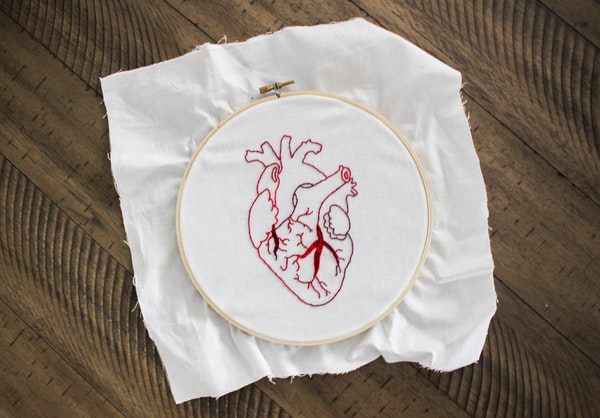
Photo by Magdaline Nicole from Pexels.
The terms heart attack and cardiac arrest tend to be used, by most people, interchangeably. The confusion is understandable since both have to do with the heart; however, there are some key differences between the two conditions that are crucial in figuring out which someone is experiencing.
What is a heart attack?
A heart attack happens when an artery gets blocked and prevents oxygen-rich blood from getting to a certain section of the heart. The section that is meant to get nourishment from the artery will begin to die if the blockage is not dealt with quickly. The longer it remains untreated, the more damage there will be.
The symptoms of a heart attack may be immediate and intense; however, more common than not, the symptoms will start slowly and last for hours, days, or weeks leading up to a heart attack. During a heart attack, as opposed to a cardiac arrest, the heart usually does not stop beating.
What is cardiac arrest?
Cardiac arrest usually happens suddenly and without a warning. It occurs due to a malfunction in the heart that then causes an arrhythmia, or an irregular heartbeat. When the heart’s pumping action is disrupted, the heart will no longer pump blood to the brain, lungs, and other organs. In just a few seconds, the person could lose consciousness and no longer have a pulse. If the individual does not get immediate treatment, they may be dead within minutes.
Symptoms
Heart Attack
As previously mentioned, heart attacks can be sudden and intense; however, for the most part, they start slowly with mild pain and discomfort. You know your body best, so if you experience any of the following symptoms, call 911.
- Chest discomfort. This can feel like uncomfortable pressure, squeezing, fullness, or pain in the center of the chest that lasts longer than a few minutes.
- Discomfort in other areas of the upper body. This can include pain in one or both arms, the back, neck, jaw, or stomach.
- Shortness of breath, either with or without chest discomfort.
- Other symptoms may include breaking out in cold sweats, nausea, or lightheadedness.
Cardiac Arrest
Immediate and drastic signs of cardiac arrest include:
- Sudden collapse
- No pulse
- No breathing
- Loss of consciousness
Other signs and symptoms before cardiac arrest can include:
- Chest discomfort
- Shortness of breath
- Weakness
- Fast-beating, fluttering or pounding heart (palpitations)
The Link
These two heart conditions are linked together even though they have quite a few differences. Cardiac arrest may occur after a heart attack or during the recovery process. The risk for cardiac arrest increases due to heart attacks. Most heart attacks do not lead to cardiac arrest; however, if cardiac arrest occurs, a heart attack is the most likely cause. There are a few other heart conditions that can disrupt the rhythm of the heart and lead to cardiac arrest, including a thickened heart muscle (cardiomyopathy), heart failure, arrhythmias, ventricular fibrillation, and long Q-T syndrome.
Health Insurance Questions?
We hope this information on heart attack versus cardiac arrest is helpful.
Empower Brokerage wants to help you understand the insurance coverage you need and how to save money getting it. Stay on top of your health and give us a call at (844) 410-1320
Get affordable health insurance quotes by clicking here.
See our other websites:

